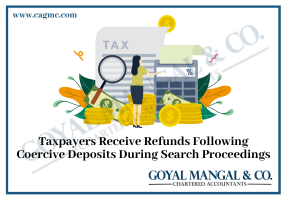
To protect public health, every entity into the food business have to make sure that the quality and safety of food products are an utmost priority. In this pursuit, the Food Safety and Standards Authority of India (FSSAI)play a crucial role in setting rules and standards for the food industry. One important aspect of FSSAI’s mandate is enforcing penalties for violations of these regulations. This article will promote detailed guidance about the Penalties under FSSAI – A Detailed Guide.
| Table of Content |
Brief about FSSAI
FSSAI stands for the “Food Safety and Standards Authority of India.” FSSAI is a regulatory institution set up by the Government of India as per the provisions of the Food Safety and Standard Act, 2006. It’s an obligation to ensure the quality and safety of food products consumed by individuals. FSSAI establishes and enforces quality standards for several products in food, such as additives, hygiene practices, ingredients, and labelling.
Their primary goal is to regulate and monitor the sale, storage, and import of food items, and manufacture to protect the consumer’s health along with to promote consumer confidence in the food industry. The authority also oversees the implementation of food safety measures across the food supply chain, from farm to fork. FSSAI formulates and enforces regulations to prevent foodborne illnesses, maintain food quality, and regulate labelling and packaging. FSSAI’s mandate covers a wide range of activities, from setting food standards to conducting inspections and FSSAI- A Detailed Guide. Its effort is geared towards safeguarding public health and fostering consumer confidence in the food industry.
Roles and Responsibilities of FSSAI
FSSAI’s roles and responsibilities include:

- Setting Standards: FSSAI establishes food safety and quality standards for various food products to ensure their safety for consumption.
- Licensing and Registration: FSSAI provides licenses and registrations to food business operators (FBOs) based on the scale of their operations and ensures their compliance with regulations.
- Regulation and Enforcement: FSSAI monitors and regulates food businesses to ensure they adhere to the defined standards and guidelines. It takes action against violations and non-compliance.
- Consumer Awareness: FSSAI educates consumers about food safety practices and helps them make informed choices about the food they consume.
- Scientific Research: FSSAI conducts research and promotes scientific studies to continuously improve food safety standards and practices.
- Import and Export: FSSAI regulates the import and export of food products to and from India, ensuring they meet the required safety and quality standards.
Capacity Building: FSSAI- A Detailed Guide works to enhance the capabilities of food testing laboratories and institutions to ensure accurate and reliable food testing.
- Promoting Food Safety: FSSAI runs campaigns and initiatives to promote food safety and encourage good manufacturing practices in the food industry.
Merits of Procuring FSSAI Licenses
Here are some of the key merits of obtaining FSSAI licenses:
- Legal Compliance: Acquiring the necessary FSSAI license or registration ensures that your food business operates within the legal framework defined by the Food Safety and Standards Authority of India. This prevents legal issues, penalties, and business disruptions due to non-compliance.
- Consumer Trust: FSSAI licenses indicate that your food products adhere to quality and safety standards. Consumers are more likely to trust and purchase products that bear the FSSAI logo, as it signifies that the products have been approved by a regulatory authority.
- Enhanced Credibility: Displaying a valid FSSAI license or registration demonstrates your commitment to maintaining high food safety and quality standards. This can boost your business’s credibility and reputation in the market.
- Export Opportunities: If your business is involved in exporting food products, having an FSSAI license is often a requirement for international trade. It assures foreign buyers that your products meet Indian food safety standards.
- Consumer Protection: By adhering to FSSAI regulations, you contribute to safeguarding public health by preventing the sale of unsafe or adulterated food products.
- Business Expansion: As your business grows, your turnover might cross certain thresholds that require upgrading your FSSAI license. Having a valid license ensures that you can continue to operate without interruption during such transitions.
- Educational Resources: The FSSAI often provides resources and information related to food safety, labelling, and regulatory updates. This can help you stay informed about best practices and changes in the food industry.
Offences and Penalties under FSSAI Act, 2006
Here are offences and penalties as per the provisions of Sections 57 to 67 of the FSSAI- A Detailed Guide Act, 2006 (hereinafter referred to as “said act”):
Selling unsafe food: If the seller is selling unsafe food or quality, substances are not adequate, then there will be 5 Lakh Rupees fine as per section 50 of the said act.
-
- Substandard Ingredients: As per the provisions of section 51 of the said act, any manufacturer, storage, importer, seller, and distributor (hereinafter referred to as “any person”) are provided sub-standard ingredients. There will be a penalty of 5 Lakhs.
- Misbranding: In the provision of Section 52 of the said act, any person has mentioned false and misleading labelling. There will be a penalty of 3 Lakhs Rupees.
- False Advertisement: Any person or publisher has published a false advertisement or misleading description about the product. Thus, there will be a 10 Lakhs Rupees penalty as mentioned under Section 53 of the said act.
- Extraneous food:If the food contains extraneous matter, there will be a 1 Lakh penalty as given under section 54 of the said act.
- Non-Compliance: Food business importers or businessmen have failed to rely on compliance along with directions. There will be a penalty of 2 Lakhs Rupees as per Section 55 of the said act.
-
- Unhygienic practices: The manufacturer or processor has provided the food items or while processing the food they will not take care of the sanitization and hygiene. Then according to section 56 of the said act, there will be a penalty of 1 Lakhs.
- Contaminated food: If any person is possessing adulterant, then there will be life imprisonment and a fine of 2 Lakhs Rs. as mentioned under section 57 of the said act.
- No specific Penalty for Contraventions: In the case of contraventions, in which no specific penalty has been given. However, in section 58 of the said act the penalty will be 2 Lakhs.
- Punishment for unsafe food: If any person has been involved in providing unsafe food, then section 59 of the said act defines three categories. In case of non-injury, a person will be imprisoned for 6 months and a penalty of 1 Lakhs. Secondly, for non-grievous injury, then there will be 1-year imprisonment and a 3 Lakhs Rs fine. The last one, if a grievous injury occurred then there will be 6 years of imprisonment and 5 Lakhs Rupees.
- Punishment for being involved in the case of seized products: If any person is interfering with the seized food products, then there will be 6 months imprisonment and 2 Lakhs Rupees of fine as provided by section 61 of the said act.
- Punishment for impersonating an FSO: Any person is involved in impersonation or obstructing an FSO. As per section 62 of the said act, 3 months imprisonment and 5 Lakhs rupees.
- Operating without License: For any person doing a food business without a license, there will be a punishment of six months and the penalty is Rs 5 Lakhs as per provisions of Section 63 of the said act.
- Punishment for subsequent offences: In section 64 of the said act, there will be a fine of Rs. 1 Lakh per day following subsequent offences.
- Compensation if any injury or death of a consumer: Section 65 of the said act, provides compensation on three different stages. Such as in case of death the compensation needs to pay 5 Lakhs; if grievous hurt then 3 Lakhs Rs. In matters of other injuries, then 1 Lakh Rs.
- Offence by Companies: Section 66 defines the company’s offences or any member is liable to such offences that they are liable to proceed against and punished as per that.
- Importing unsafe food: Importing food products that are unsafe, substandard, or do not meet FSSAI standards can lead to penalties and even imprisonment.
How to Import Food Products in India?
Final Words
Through the above article, we can say FSSAI- A Detailed Guide that the commitment of FSSAI is maintaining for the food safety and quality. They are designed to avoid violations and make sure that food products in India meet the highest standards. Selling unsafe or adulterated food in the market will lead to offences and then penalties. In conclusion, to understand penalties under the FSSAI Act is a significant for all food business operators and stakeholders in the industry.







